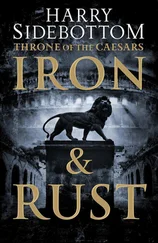I am a doctor, he told himself. I am a doctor.
The longer Victor was without oxygen the worse it would be, and so he must elevate his head. He must proceed to breathe his life into his only son. He placed his mouth over Victor’s, tasting the blood in his throat. He fixed his fist against his Victor’s chest and pumped as hard as he could. Now, more than ever, he wished for his stethoscope. He wished for the whisper of Victor’s heartbeat.
But the moving had stopped. There was no more tremble in the legs.
Job lifted Victor off the concrete, first his shoulders, then his head. He shouted air into his son’s lungs. He beat harder at his chest. And then he felt it, a sudden hard ripple of breath, the starting of the boy’s engine. Soon, I will have my boy, he thought — and the smile, the dull smile, and the pranks, and the unruliness.
“Let him go.” Someone grabbed Job’s arms.
Without looking, Job angrily batted at the arms. “I am a doctor,” he said.
“Doctor, let him go.”
“I am performing CPR.”
A pair of arms knocked him back off his feet. A calm whisper in his ear: “Doctor, you did all you could.” Two sets of arms paralyzed him, grinding his face to the concrete until the deafening peal of sirens, the swirl of lights, the glowing haze of headlights was cutting through the night air like a fog. Now the street was filled with neighbors, all whispering among themselves; and there was the girl, standing with her back to a police car, the arms of her mother wound around her as an officer questioned her. And Ifi, her eyes filled with that unmistakable frown of disappointment.
Above it all, Job could hear the man’s voice: “Doctor, you did all you could.”
Soon, the ambulance was taking his Victor away, and the men were leading Job to one of the police cars; and Ifi was standing with her back to him, talking to one of the officers; and Job was wailing and angry and hating himself, wishing for his stethoscope, flipping through the channels of his mind, trying to replay every minute, trying to find the moment between the last tremble and the sudden release, realizing that for just one moment, he had his boy’s life in his hands, and he let it slip away.
IF ONE APPLIES, THERE IS PAID TIME FOR GRIEVANCE. WHEN AUNTY DIED, IFI thought to apply then; she didn’t. How to explain that her father’s sister — her surrogate mother whom Ifi had hated all those years without even knowing it until her aunty’s one visit to America — had died from a heart attack? Now in Aunty’s place was another woman, half her uncle’s age and half her aunty’s size. From then on, Nigeria was no longer home.
When the baby girl died inside Ifi’s body, how to explain that a child who had never been born needed proper bereavement, that somewhere inside her, she knew that she would never recover from the pain? She could never have another child.
The exchange never made sense to her then, as it didn’t now: a penny for every second of pain. With the forms spread out in front of her, Ifi imagined the stacks and stacks of pennies filling the room, rising from the dusty, hardwood floors past the gaping hole in the wall to the ceiling. What can I do with these pennies? she asked herself. She could never spend them, because they would continue to replicate forever, like a cancer. Under the bold heading, REASON, Ifi left the space blank. Her application was denied.
A night before Job planned to fly to Nigeria alone, to bury their son, Ifi parked the car outside the junkyard where the damaged vehicle that had killed her boy rested. Bats screeched well into the night. It had just rained. Mist salted the air. A high chain-link fence wrapped around the junkyard. It was secured with a rusted padlock.
Ifi’s mind was a revolving door of blame. Yesterday it was Job’s fault. He bought that foolish Big Wheel. If Victor had never ridden it, he would never have wandered into the street. If they had never moved into that big, ugly house, they would never have lived in such a neighborhood where a boy couldn’t play in the streets without fear. If she had never met Job. .
Today it was Ifi. Why didn’t I allow the boy to play in the house? She should have permitted him to be as rough as he pleased. Then he would never have had any reason to be out in the street. He was a boy, sef. Anything he broke in the house could be repaired or replaced. Why was I so insistent on scolding the poor boy for a mere scratch on the wall?
Why must Job look at her that way with his probing eyes? Why couldn’t he go to work like a normal human being? After all, people lost children every day of the week in every part of the world. Immediately after it had all happened, Ifi returned to the motel. She went about cleaning each room as if nothing had happened. But Job stayed home. He hardly ate a thing these days.
Until today. That morning, he’d collected himself and acted as if everything was fine. And suddenly it didn’t seem right for him to pick up and move on as Ifi had. Without her realizing it was the case, Job’s pain had been a comfort to her. It was as if everything that had been holding Ifi together began to crumble once she saw Job go about his day. She’d left the house and kept driving, even after she crossed the path of the motel’s flickering lights — until she was here, again, at the junkyard. And now, instead of remaining behind it as she had done for the past few weeks, Ifi found herself mounting the chain-link fence. Tonight she needed to be closer.
Feeling a rip in her uniform slacks, she scaled the fence. A red gash on her thigh screamed. Puddles rippled beneath her heels. Cars were lined in rows, their broken frames pushed into the mud. A light glowed. The fading outline of a row of buildings some ways out was illuminated. Off in the distance farther still was the highway. Wet tires hissed on the pavement.
In the newspaper, the article had been exactly one paragraph in length. Victor was unnamed. The first line, which Ifi remembered by heart, read “One boy dead in a vehicle-bicycle accident on the corner of Ash and Leighton.” There was no mention of Victor’s beloved Big Wheel. No mention of his antics. No mention of the light in his eyes. Silence hung between the words on the page. When reporters called the next morning, Ifi and Job refused to comment. In the place of words was a picture of a dented silver car. Missing from the picture were the pieces of Victor’s broken body.
Dusk shaded the coup’s silver color. Although the license plates had been pried free, Ifi found the car immediately. Among the rows, it was obedient and cowed. At first she stood, simply gazing at the car. Ifi and Job had joked since Victor was born that he had a big head. His thighs were lumpy. He had been a plump baby and chubby for a boy of nearly six. As he had lived his life full of noise, he refused to go out in a whisper: the windshield was shattered where he had been flung.
Ifi meant only to look at the car, to think about Victor’s last few moments pedaling through the streets, probably hollering like a fire truck’s siren. She meant only to run her fingers over the frame, to touch the parts of the vehicle that had felt her son last. Her fingers slid over the car’s surface. Wet with rust and dirt, Ifi brought her palm to her face and touched. The smell of metal and iron was so strong in her nose and throat that she gagged and hacked saliva on the ground. Her heel pressed into the spit. Then, as if by reflex, Ifi’s foot came forward and struck one headlight, then the other. Her fists closed over the hood. Ifi struck again and again until she was haggard and bloody with fury.
She stepped away to inspect the damage. But for a dent and a few cracks in the headlights, there was none.
Читать дальше












